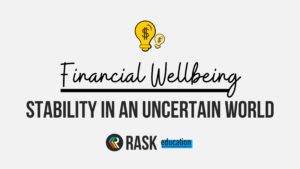What The Efficient Market Hypothesis Means
The Efficient market hypothesis (EMH) is a term you may have heard bandied around in investing circles, but why, as an investor, would it matter to you?
Largely credited to Eugene F. Fama, who wrote the seminal papers on the topic, EMH made its big break on to the investing scene in the late 1960s and early 1970s.
The Basics
EMH refers to the efficiency of pricing in the market and the ability of the investment market to deliver information to investors. Fama first suggested in 1965 that market prices “fully reflect” the information available to investors, and provided empirical evidence to show that share prices follow a “random walk”.
Essentially, his paper insinuated that an investor cannot produce consistent, better-than-average returns no matter how skillful an investor may be.
Fama was suggesting that no matter what you do, you can’t beat the market. This idea is what brought ETF’s and indexing to life and to the forefront of investing. Click here to the full list of Australian ASX ETFs.
Three Levels of Efficiency
In 1970, Fama released another paper further detailing his hypothesis, breaking down efficiency into three forms: weak-form; semi-strong form; and strong form efficiency.
These levels of efficiency refer to the amount of information compounded into the share price of a company, such as Telstra Corporation Ltd (ASX: TLS). For example, in a weak-form efficient market, Telstra’s share price would only reflect all past information. This suggests that any new information or insider information could be used to beat market returns.
At the other end of the spectrum, in the strong-form efficient market, all past and current information, including private insider information, is already reflected in the Telstra share price. This would mean that no investor has an informational edge over another, and no one can beat the market returns.
What Does The Evidence Say?
The jury is still out on whether EMH is correct, but there’s some compelling evidence for weak-form and semi-strong form efficiency. Meaning, it may not be perfectly efficient.
Most academic papers and research support weak-form efficiency and have found that an investor can’t use past information to beat the market. This holds true in both developed and emerging markets and is supported by information suggesting low-cost ASX index funds are a worthwhile consideration.
Looking at semi-strong form efficiency, the results are more evenly split. When testing for semi-strong form efficiency, researchers try to predict future price movements using only publicly available information, much like a “Mum and Dad” investor would. Although there has been mixed success in developed markets, such markets such has the New York Stock Exchange, a lot of studies suggest it can’t be done. The evidence in emerging markets shows a lot more promise that it is possible to predict future price movements.
It is assumed that this is because of communication inefficiencies that delay the effect of an announcement on the share price.
If You Can’t Beat ‘Em, Join ‘Em
To sum up, EMH suggests markets are efficient and cannot be beaten by investors. Although the jury is still out, and the behavioural finance researchers still have their arguments, the evidence shows that this is likely correct and that the only way to consistently beat developed markets is with insider information.
If you want to pick stocks and beat the market, you may have more luck in the less-efficient emerging markets. But in developed markets, it looks like a low-cost ETF might just be your best option.
[ls_content_block id=”27643″ para=”paragraphs”]



